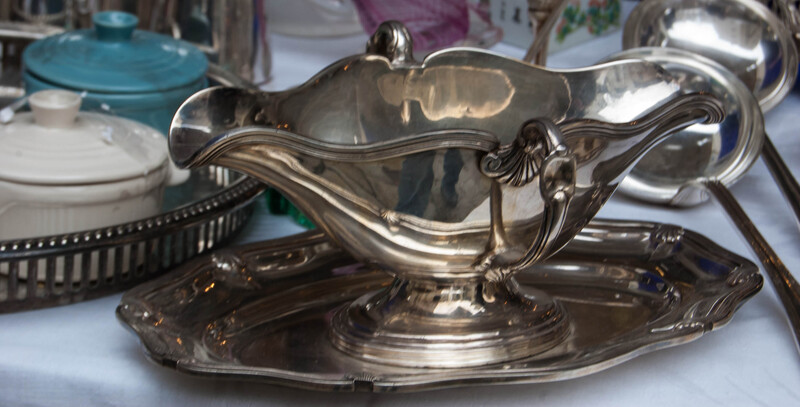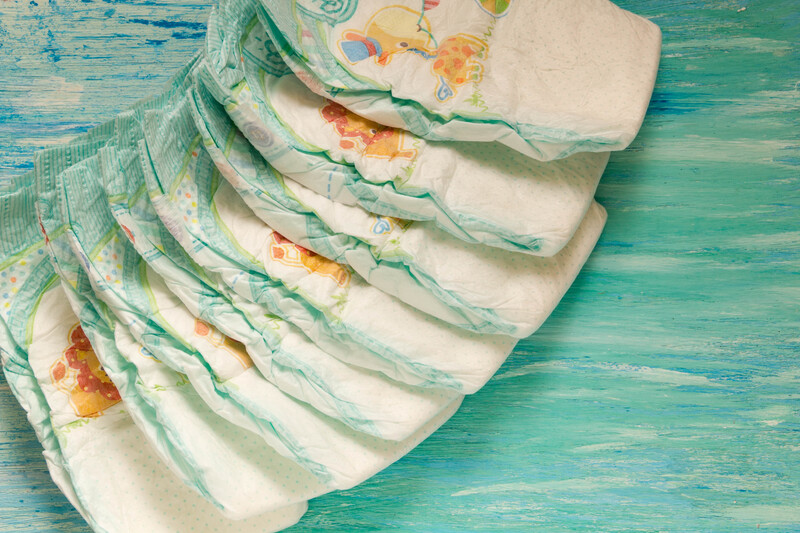Explore Stress Relief Methods Through De-cluttering
It's no secret that modern life can be incredibly stressful. From overloaded schedules to the constant influx of notifications and commitments, many people feel overwhelmed daily. However, there's a surprisingly simple method that can provide significant stress relief: de-cluttering. Not only does a tidy space create a sense of order, but it also has powerful psychological benefits. In this comprehensive guide, we'll explore stress relief methods through de-cluttering and discover how transforming your space can lead to a calmer, more peaceful mind.

Why Clutter Causes Stress
Most people don't realize how deeply our environment impacts our mental state. Piles of papers, overflowing closets, and chaotic rooms can result in cognitive overload. Here's why clutter is so stressful:
- Visual Distraction: Messy environments strain your eyes and mind, making it difficult to focus and relax.
- Decision Fatigue: Every item you see demands attention, causing micro-decisions that drain mental energy.
- Guilt & Frustration: Unfinished projects and unused items trigger negative emotions like guilt or frustration.
- Lack of Productivity: Clutter eats up both physical and mental space, making it harder to get things done.
By addressing clutter, you address these root causes of stress. That's why so many experts recommend organizing your space as a foundational stress management technique.
The Science Behind De-cluttering and Stress Relief
Research consistently shows that an organized environment leads to:
- Lower levels of the stress hormone cortisol (US National Library of Medicine)
- Improved mood and sense of control
- Greater productivity and motivation
- Better sleep quality
Clutter isn't just a visual nuisance; it physiologically worsens stress responses. By tidying up, you send your brain a signal: "It's safe, it's manageable, and you're in control." This sets the stage for lasting calm.
Step-By-Step De-cluttering for Stress Reduction
1. Set Your Intention: Mindset Matters
Before diving in, decide why you want to declutter. Are you seeking a more peaceful space? Hoping to reduce anxiety or improve your routines? Setting a clear intention keeps you motivated and focused when the process gets tough.
2. Start Small to Prevent Overwhelm
A huge house-wide overhaul may seem daunting. Instead, start with one small area:
- Your desk
- Nightstand drawer
- Bathroom cabinet
Completing a small zone delivers instant gratification and builds momentum for tackling bigger projects.
3. Use the Four-Box Method
As you de-clutter, sort items into four boxes or bags:
- Keep: Things you use and love
- Donate: Items in good condition but not needed
- Recycle: Papers, plastics, or materials for recycling
- Trash: Broken, unusable, or expired items
This method helps eliminate indecision and ensures you address every item.
4. Set a Timer
To avoid burnout, try decluttering in 15- or 30-minute increments. Set a timer and tackle only what you can during that period. You'll be surprised at how much progress you can make--without feeling exhausted.
5. Celebrate Tangible Progress
Once you've completed a de-cluttering session, take a moment to enjoy the results. Light a candle, play relaxing music, or simply sit and breathe deeply in your freshly tidied space.
The Emotional Benefits of De-cluttering for Stress Management
The psychological rewards of a clutter-free space extend beyond mere aesthetics:
- Sense of Accomplishment: Each area you organize gives you a boost of confidence.
- Clarity of Mind: Less clutter means fewer distractions and more mental space for creativity and relaxation.
- Reduced Anxiety: Orderly spaces signal to your brain that you are in control, reducing those anxious thoughts.
- Peace and Contentment: Coming home to a tidy space feels like a daily reward and promotes inner calm.
Stress Relief Through De-cluttering: Tips For Every Room
De-cluttering the Bedroom
The bedroom should be your sanctuary. Remove unnecessary items from beside your bed and nightstand, and keep only essentials in your wardrobe. Invest in under-bed storage for seasonal items and consider donating clothes you haven't worn in over a year.
Organizing the Kitchen
A messy kitchen can make healthy eating and meal prepping stressful. Clear countertops of anything you don't use daily, sort pantry goods, and recycle expired foods. Keep a visible fruit bowl or water bottle as a reminder for healthy habits.
Tidying Living Spaces
High-traffic areas attract clutter quickly. Assign a specific spot for incoming mail, remote controls, and kids' toys. Wicker baskets and attractive organizers keep things tidy and accessible.
Calming the Workspace
A clear desk leads to a clear mind. Keep your workstation clutter-free by filing papers immediately or digitizing notes. Regularly sort through office supplies and get rid of what you don't use; this supports sustained focus and reduces workplace stress.
Minimalism as a Lifestyle for Stress Management
Many people take de-cluttering further by embracing minimalism. The minimalist philosophy, rooted in owning less and cherishing more, can dramatically boost your psychological well-being:
- Fewer Decisions: Fewer possessions mean fewer choices and reduced decision fatigue.
- More Freedom: Letting go of excess "stuff" often translates to more time, money, and energy.
- Greater Contentment: Minimalists often report feeling more grateful and less preoccupied with material concerns.
- Clarity of Purpose: Minimalism encourages purposeful living--only keeping items and commitments that align with your values and goals.
Digital De-cluttering for Modern Stress Relief
Physical clutter isn't the only source of overwhelm. Digital distractions drain focus and contribute to stress as well. Try these steps:
- Unsubscribe from unnecessary email lists
- Delete unused apps and folders on your phone or computer
- Organize files into folders for quicker access
- Limit notifications to the most essential apps
A minimal digital environment can create more headspace and a sense of mental order.
Creating Sustainable Habits for Ongoing Stress Relief
Regular Maintenance
It's easier to stay organized than to do huge cleanouts. Dedicate 10 minutes at the end of each day to tidy up your most-used spaces. This consistent effort prevents clutter from building up again.
The "One In, One Out" Rule
When you purchase a new item, commit to letting go of a similar one. This is a simple yet highly effective method for preventing clutter before it starts.
Monthly Mini-Declutters
Pick one zone to re-assess each month, whether it's your closet, car, or work files. These quick refresh sessions ensure you stay on top of your organization goals for lasting stress relief.
De-cluttering As A Mindfulness Practice
De-cluttering isn't just about the physical act--it's a form of mindfulness. When you thoughtfully select what to keep and let go of, you're practicing being present and intentional. Try these mindful de-cluttering tips:
- Pay attention to your emotional reactions as you sort through items
- Notice your breath and body tension as you clean
- Acknowledge feelings of guilt or attachment, and let them pass without judgment
In this way, de-cluttering becomes an act of self-care and an effective stress-management tool.
Decluttered Spaces, Calmer Minds: Real-Life Transformations
Many people have experienced profound changes by exploring stress relief methods through de-cluttering. Here's what some have reported:
- Reduced panic attacks after organizing a chaotic workspace
- Improved relationships thanks to peaceful shared living areas
- Renewed motivation and energy with a streamlined wardrobe
- Emotional healing and closure from letting go of old memorabilia
You may even find that, as your surroundings become lighter, so do your thoughts and emotions.

De-cluttering for Stress Relief: Frequently Asked Questions
- How often should I declutter?
Ideally, do small tidy-ups daily and big purges once or twice a year. - What if I get stuck on sentimental items?
Keep only what genuinely brings joy or holds profound meaning. Photograph items you're not ready to part with, or store keepsakes in a special box. - Can decluttering really help my anxiety?
Absolutely! Many studies and testimonials link decluttering to reduced anxiety and improved emotional well-being. - Is professional help available for organizing?
Yes, professional organizers offer hands-on support and accountability for those who need extra help or guidance.
Conclusion: Embrace Stress Relief Through De-cluttering
Clutter is more than just a household inconvenience; it's a significant source of stress in many people's lives. By exploring stress relief methods through de-cluttering, you'll not only reclaim your physical space, but you'll also nurture a sense of inner peace and restore balance to your life. Start small, stay consistent, and remember: every item you let go of makes room for clarity, calm, and happiness.
It's time to experience the profound difference a decluttered life can bring. Begin your journey today to a more tranquil, organized, and stress-free you.